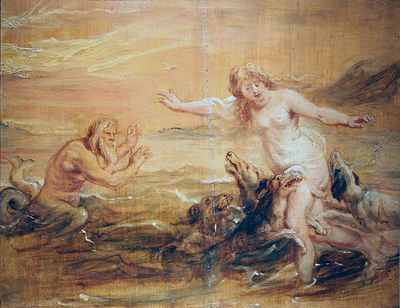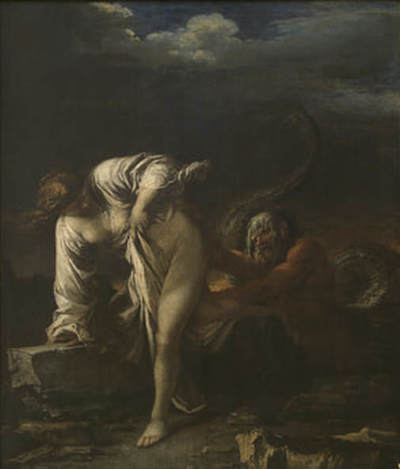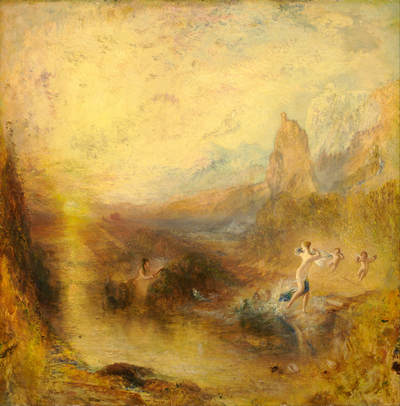|
|
Glaucus and Scylla
The story of Glaucus and Scylla from Greek mythology was one retold in paint by a number of artists, including Rubens and Turner.
According to some ancient sources, Glaucus was once a mortal fisherman who discovered a herb that made him immortal and a god, although the side effect was that it transformed him into a merman. Syclla was said by these same sources to be a beautiful nymph.
Glaucus observed Scylla and fell in love with her, and Glaucus sought from Circe a potion to cause Scylla to fall in love with him. Circe though was herself in love with Glaucus, and the potion provided to Glaucus did not cause Scylla to fall in love, but instead transformed her into a monster.
According to some ancient sources, Glaucus was once a mortal fisherman who discovered a herb that made him immortal and a god, although the side effect was that it transformed him into a merman. Syclla was said by these same sources to be a beautiful nymph.
Glaucus observed Scylla and fell in love with her, and Glaucus sought from Circe a potion to cause Scylla to fall in love with him. Circe though was herself in love with Glaucus, and the potion provided to Glaucus did not cause Scylla to fall in love, but instead transformed her into a monster.
|
|
|


